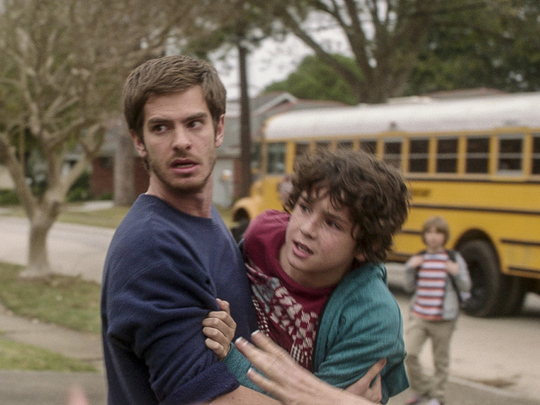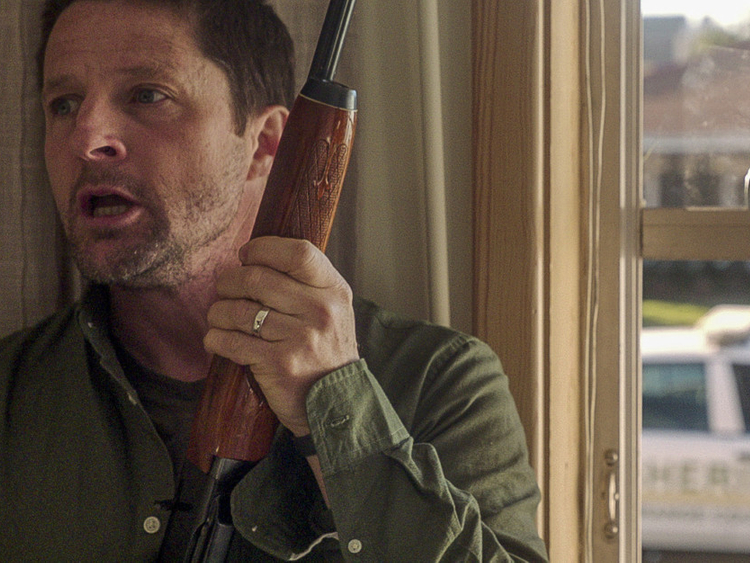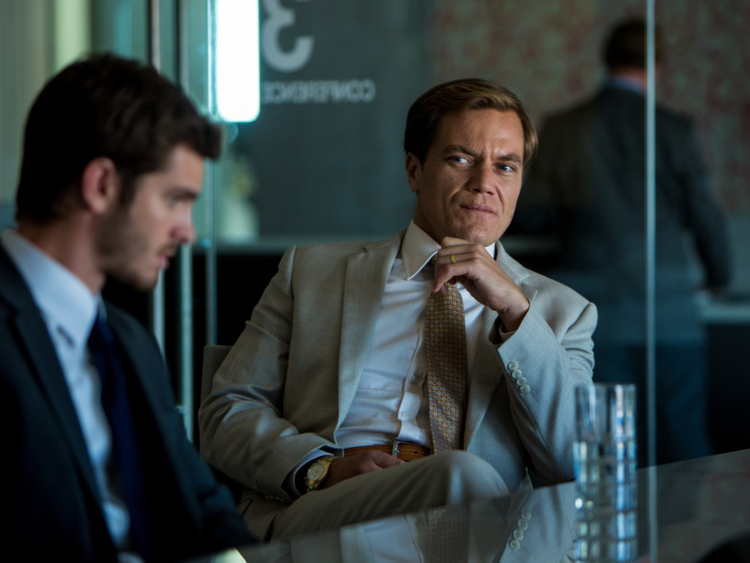
Ramin Bahrani’s 99 Homes throbs with the public fury and private horror of the real-estate collapse. Set in the Orlando, Florida, suburbs, Bahrani plunges into the ugly, contentious dramas of foreclosure. It’s a war movie where thresholds are the battle lines.
“This is our home!” cries Andrew Garfield’s Dennis Nash from his doorway when police and a real-estate broker for the bank, Rick Carver (Michael Shannon), collect on his lawn to evict him, his young son (Noah Lomax) and his mother (Laura Dern).
It’s a scene that 99 Homes plays out repeatedly, sometimes with tears, sometimes with blood, and always with a tragic sense of invasion for the turned-out families spilled onto sidewalks.
The central twist of the film is that once Nash, a jack-of-all-trades carpenter whose work has dried up along with new home construction, finds himself out of options, he’s lured into work by Carver. He’s a Faustian figure: a white-suited devil on a cell phone making a fortune profiting on the misfortunes of others.
But shacked up in a low-rent motel and with his family’s survival very much in question, Nash takes the job. He soon finds himself on the other side of foreclosures, explaining to others that they are now trespassing on the bank’s property. Gobs of money, some of it underhandedly made, help quiet his guilt.
Garfield, in his first post-Spiderman movie and most adult role to date, excels in capturing Nash’s desperate transition, from the breathless panic of losing his home to his reluctant and dubious rebirth.
As he so often is, Shannon is a towering force. His Carver is ruthlessly emotionless, rationalising his role as merely a cog in a system controlled by larger entities: banks, the government.
He drives down the block, eyeing each house for repossession. His own mansion, he says, he’s had for 18 months, but will flip by New Year’s. He’s a ruthless realist operating in a corrupt system: “Don’t get emotional about real estate,” he repeats.
The real villain of 99 Homes lies somewhere off-screen. It’s the entire, rigged apparatus — predatory lending, unfair mortgage rates, bailed-out banks — that has produced both the unfairly evicted and the likes of Carver. “America doesn’t bail out the losers,” Carver says in his big speech. But his hint of relief in the film’s climactic moment suggests he, too, feels trapped by the dehumanising system.
Bahrani, who wrote the script with Ami Naderi, has specialised in socially conscious tales. His first film, Man Push Cart, tenderly profiled the life of a Pakistani pushcart vendor in New York. His last, At Any Price, with Zac Efron and Dennis Quaid, was a melodrama of a Midwestern farming family.
His touch isn’t always light. It’s not every director who will, after stretching out every harrowing moment of Nash’s eviction, then cue the arrival of the son’s school bus just when men are emerging with armfuls of their things.
But where many well-meaning social dramas inevitably turn soggy with moralising, the visceral 99 Homes keeps its fire.
99 Homes, a Broad Green Pictures release, is rated R by the Motion Picture Association of America for “intense peril and disturbing images.”











